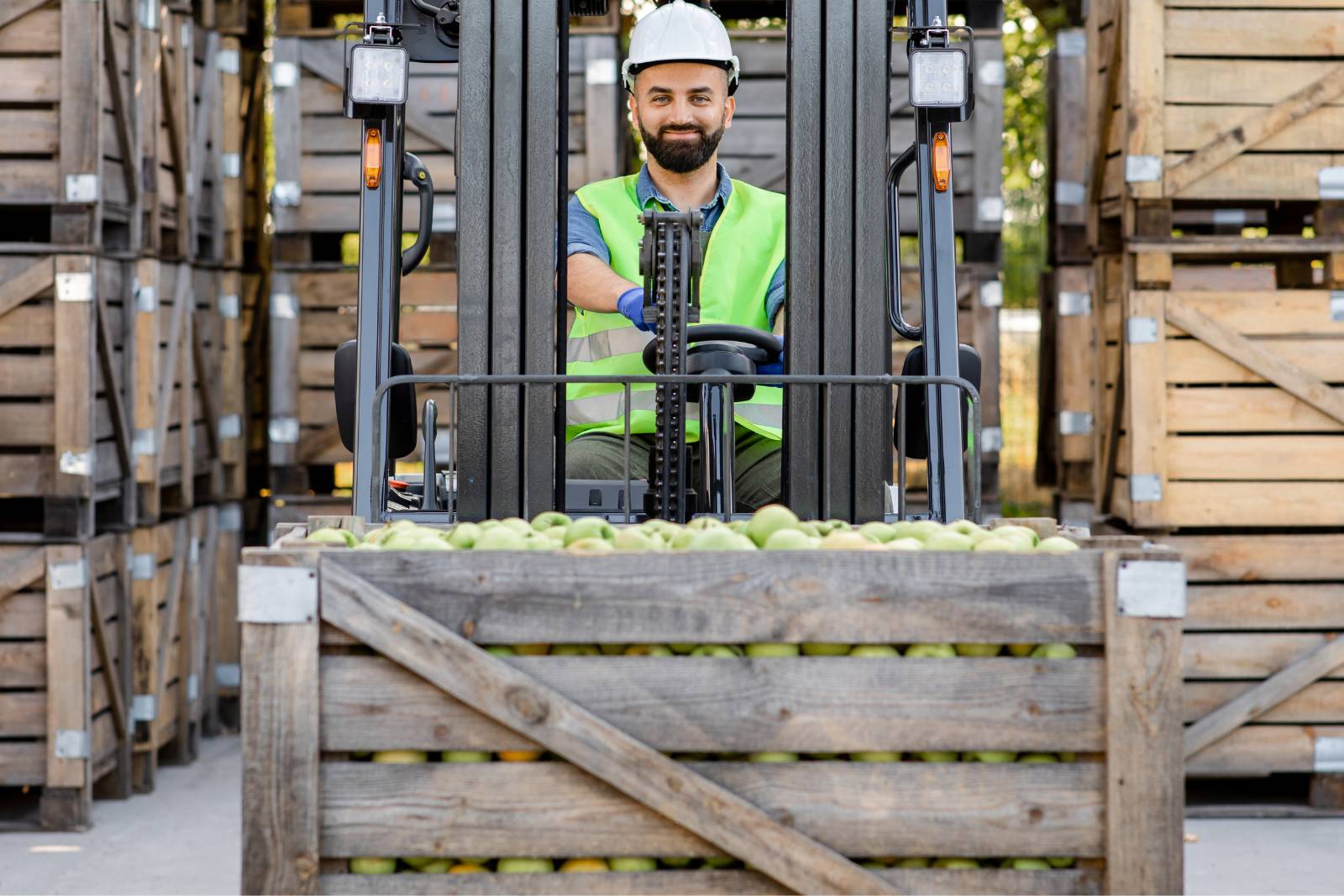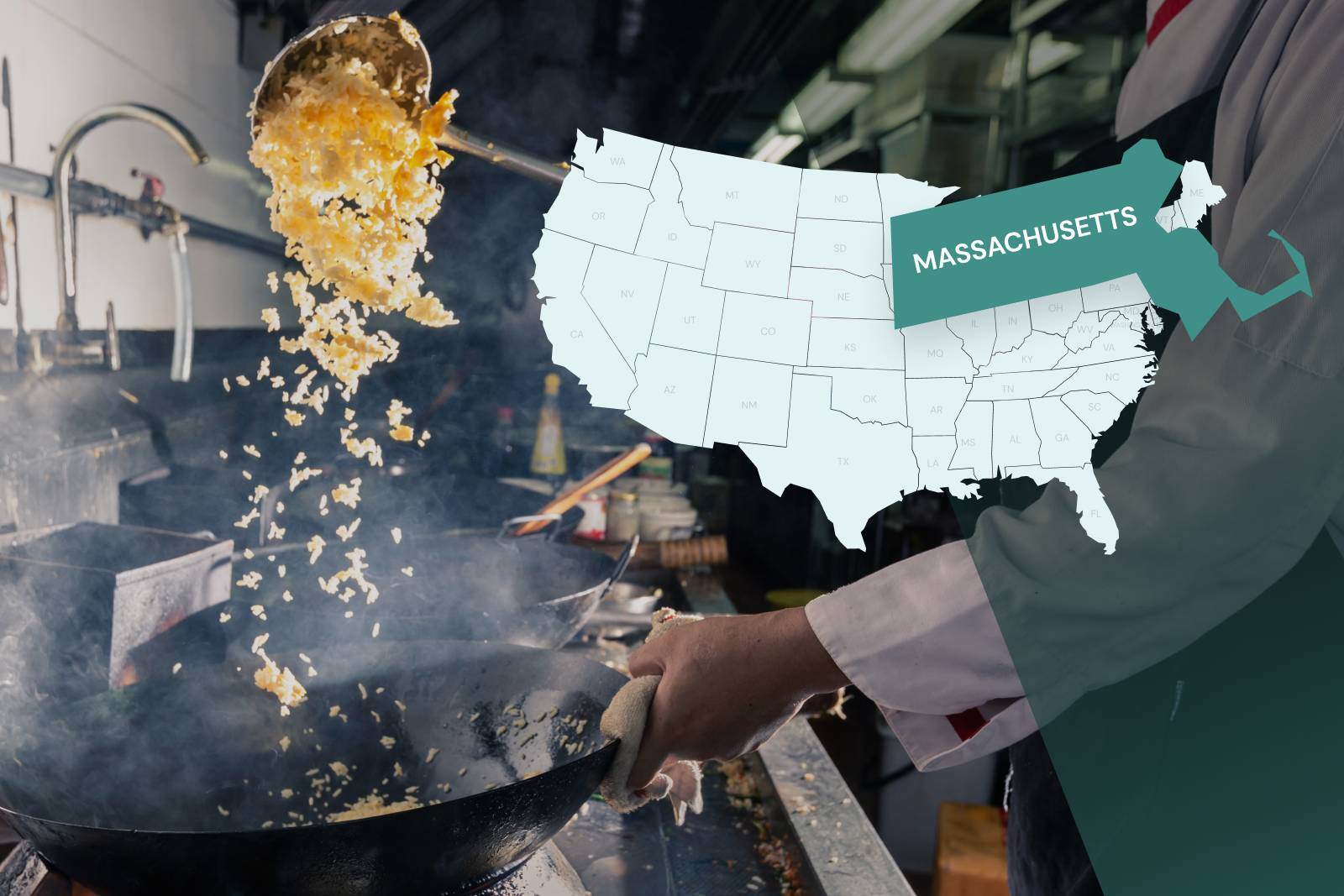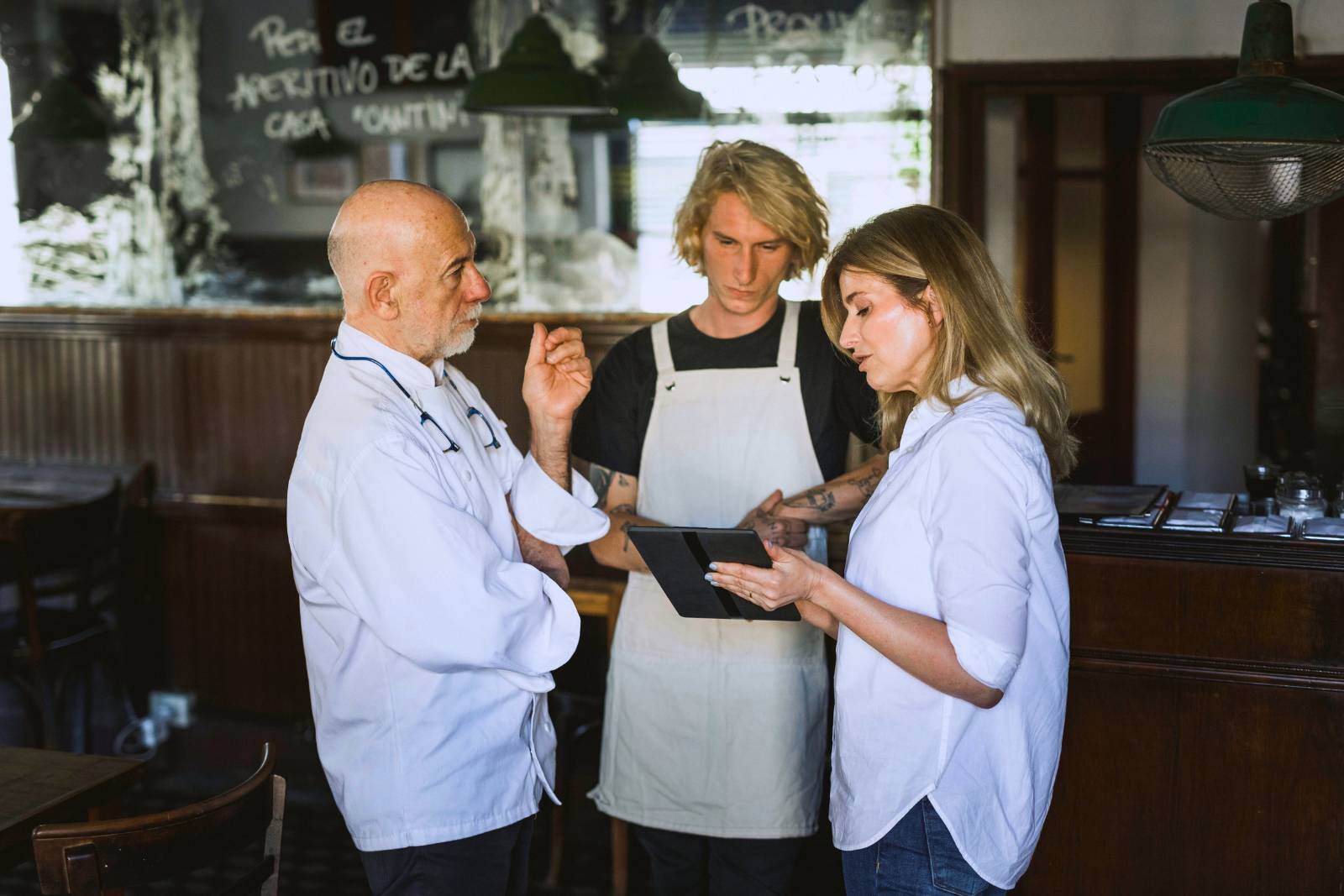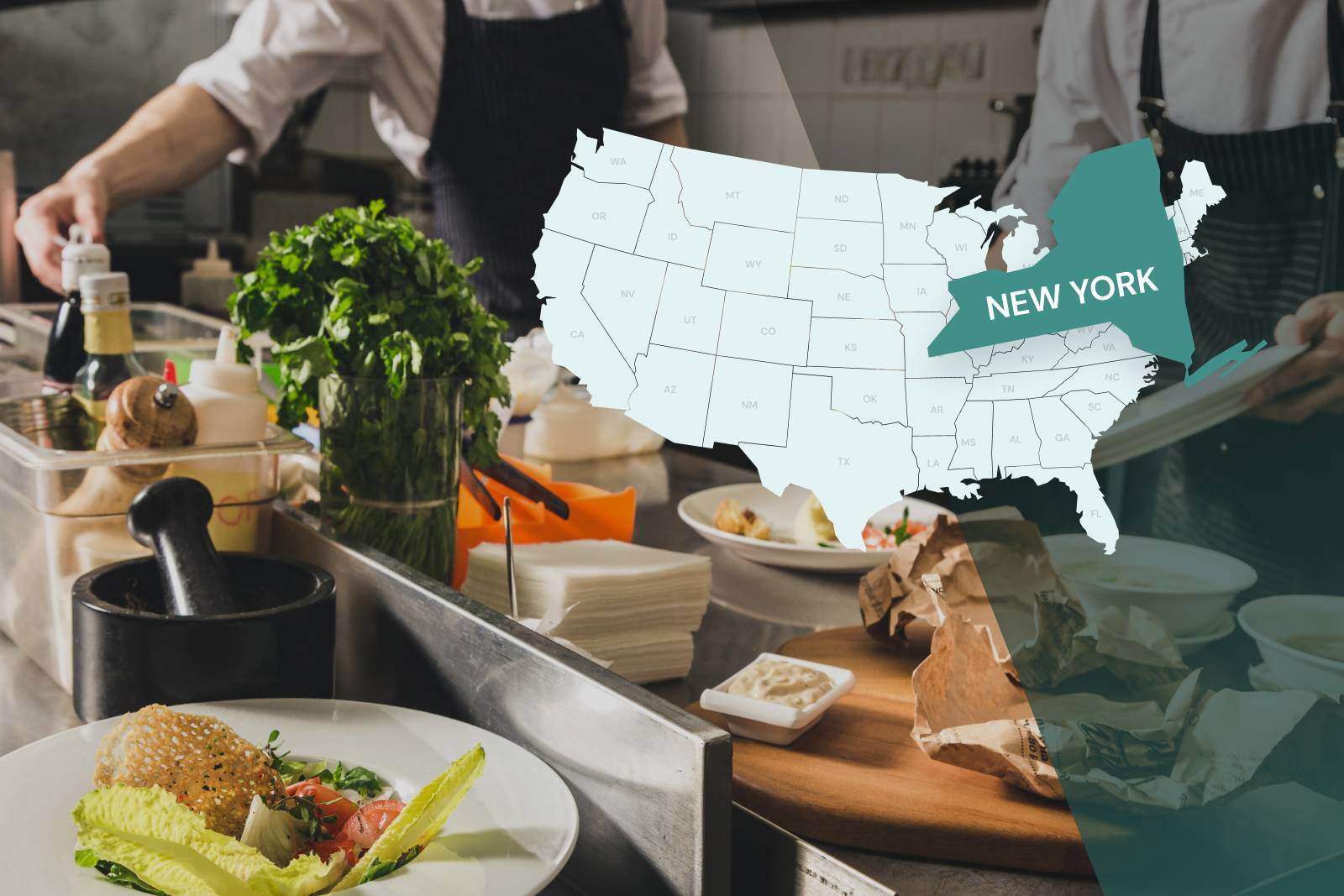If you work in foodservice, one of your key responsibilities is ensuring that the food you serve to customers is safe and of high quality. We tend to focus a lot on what happens to the food once it arrives in the kitchen–and that makes sense since that’s what’s in your control.
But there may be another way to make sure the food you’re serving is safe–and it’s a step you can’t overlook. You need to start by choosing approved suppliers.
After all, contamination can happen at any point in the food supply chain. From how food is grown and harvested to how it’s trucked to you, it’s important to pay attention to each and every component of the process. That starts with selecting the right suppliers.
So what exactly is an approved supplier, and how do you find one? Let’s take a closer look.
Who Maintains the Approved Supplier List?
How to Find Approved Suppliers
What to Look for When Choosing a Supplier
How to Maintain a Good Relationship With Your Supplier
Why is Supplier Approval Important?
What is an Approved Supplier?
The Food Safety Modernization Act (FSMA) requires effective supplier food safety management programs that cut across all food, regardless of who regulates or sells it. An approved supplier is simply a vendor who has undergone a rigorous evaluation and approval process to meet those FSMA requirements–before being allowed to provide goods or services to your business.
That assessment might include evaluations of the supplier’s product quality, safety practices, delivery capabilities, and more. At the end of the day, an approved supplier will meet your company’s standards and align with your values, particularly regarding food safety.
It all comes down to quality assurance. If you don’t work with approved suppliers, you run the risk of using ingredients or products that could be contaminated or of lesser quality. This can lead to potential health risks to your customers or a lower quality of food which can impact your business in the long run.
Working with approved suppliers ensures that you can trust the products you’re using, and in turn, the customers who consume them can also rely on them.
Again, an approved supplier must follow strict guidelines that are put in place by your local authorities, such as proper handling, storage, and transportation of the goods to maintain their approval status.
While it can sometimes be okay to purchase from roadside vendors, local farmers, or farmer’s markets, you must be careful veering away from approved suppliers to avoid any possible health hazards.
Make sure the vendors have proper licenses and insurance–and that they follow all safety regulations. Look at their practices with an eagle eye and always avoid suppliers who will be selling food prepared in home kitchens.
Who Maintains the Approved Supplier List?
Now that you know who an approved supplier is, how do you go about finding one? Is there a list you can turn to, and perhaps more importantly, who is in charge of this list?
Let's start with the basics. An approved supplier list is simply a list of suppliers that meet certain criteria for food safety and quality. For most approved supplier programs, a supplier usually just needs to provide documentation that proves their compliance with relevant food safety regulations, such as third-party audit reports, Letters of Guarantee, and Certificates of Analysis (COAs).
These documents are collected and reviewed by various stakeholders who are responsible for ensuring that the supplier is safe to work with. In some cases, they also need to complete surveys, but these tend only to be a repeat of information already provided in third-party audit reports, as mentioned earlier.
Some advanced supplier programs may require suppliers to have GFSI certification or a minimum score.1
Regulatory bodies like the FDA or USDA may also be involved in maintaining the approved supplier list.2 These organizations may set guidelines or standards for what qualifies as an approved supplier and provide oversight or inspection to ensure that suppliers meet these standards.
How to Find Approved Suppliers
While there’s lots of information about why it’s so important to work with approved suppliers, the reality is that it can be tough to find out who those suppliers actually are. There’s lots of talk of “approved supplier” lists, but a quick Google search likely won’t yield much in figuring out which vendors are on those lists.
Your first step in finding the right supplier should be to talk to your local regulatory agency. If you have a nearby FDA office, they may be able to provide guidance on approved vendors. After all, the FDA provides guidelines and regulations for food businesses, and suppliers are required to adhere to these regulations.
Your local inspector may also be able to provide insights and recommendations on approved suppliers based on their knowledge of the regulations and requirements. They can also help you identify potential suppliers who may not be listed on major directories.
You can also use online directories, though these can sometimes be tough to search and filter by location. That said, they may be able to offer information on where to start your search or who to contact.
Another option is to use social media platforms like LinkedIn to search for suppliers, message them, and possibly establish a business relationship.
Once you’ve narrowed down your list to a few potential suppliers, it may be helpful to get feedback from other customers or references that the supplier has previously worked with.
Reach out to their current or past customers and find out what their experience has been like working with the supplier. Ask about their communication, product quality, reliability, and any other important factors. The more information you have about a supplier, the better off you’ll be.
What to Look for When Choosing a Supplier
As you’re vetting potential suppliers, there are a few things you’ll want to pay attention to. After all, just because a supplier is approved doesn’t mean they’ll be the right fit; it just means they check off certain food safety boxes.
Here are a few things to pay attention to as you narrow down your options.
Time in Business
When choosing a supplier, one of the most crucial factors to consider is their time in business. An established supplier with a good reputation in the industry is more likely to provide quality ingredients and reliable services compared to a new supplier. That said, you shouldn’t rule out new suppliers entirely–just keep this in mind as a factor in your search.
Look for suppliers who have been in business for at least several years and have a track record of success.
Third-Party Certification
As mentioned earlier, a reputable third-party certification such as HACCP (Hazard Analysis and Critical Control Points) or GFSI (Global Food Safety Initiative) can assure you that the supplier is following proper food safety protocols.3 Request a copy of their current certificate and double-check that it’s not expired.
You should also evaluate the certification's scope and relevance to the materials being supplied to you.
Consider Completing Your Own Audit and Review
Don't rely solely on supplier documentation and certifications when making your decision.
Consider conducting your own audit and review of the supplier's operation. A more boots-on-the-ground approach can give you insight into how organized the facility is, how it promotes food safety, how equipment is maintained, and how staff members interact with each other.
Take the time to also look into how the supplier mitigates food safety risks and the effectiveness of their food safety systems. Whenever possible, do a site visit. You can better understand the supplier’s quality measures and practices and discuss any concerns you might have about pricing, delivery schedules, product quality, and more.
Process for Dealing With Issues in Products
We all know that things in the foodservice industry don't always go as planned. Occasionally, there may be issues with the products you receive, such as contamination or damaged goods.
You need to work with a supplier with clear procedures, policies, and processes to handle these situations promptly and efficiently. Choose a supplier who has a record of resolving issues in a professional manner.
How Products are Transported
The way your supplier transports your products is another critical area to pay attention to. You need to make sure that your supplier adheres to proper temperature controls to prevent spoilage and contamination of your products.
Find out what types of delivery vehicles they have, their schedules, and if they have GPS tracking and temperature monitoring systems. Choose a supplier that follows the guidelines for transporting food products.
Billing Practices and Prices
Though it shouldn’t be the only factor to consider (we’ve all been burned by choosing the cheapest option rather than the best option!), cost is still a significant factor to consider when choosing a supplier.
Take the time to examine supplier prices and billing practices to make sure that you can afford them. Look out for hidden fees or extra charges you might not be aware of when signing up for their services.
Compare different suppliers to find the one that's both cost-effective and reliable.
Delivery Schedule
Does the supplier have a reliable delivery schedule that can accommodate your restaurant's needs? You’ll want to choose a supplier that can deliver your orders on time and, just as importantly, with consistency. You need to know what day products are coming and when.
Without this information, you can’t plan menus, schedule staff to put away orders, and more.
Late deliveries can impact your restaurant's operations and leave you with unhappy customers. Therefore, when selecting a supplier, take the time to ensure you fully understand their delivery timeline and are comfortable with their scheduled delivery days and systems.
Think About Your Supplier’s Supplier
Not every supplier produces all their products in-house. Therefore, it’s smart to consider where your supplier gets their supplies from. Make sure that all suppliers you’re involved with, whether direct or indirect, meet the same quality standards you expect from your primary supplier.
Have Emergency Suppliers Vetted and in Place
Life happens, and so do emergencies–but that doesn’t mean you want your restaurant grinding to a halt if your supplier has to shut down unexpectedly. Therefore, it’s smart to have an emergency supplier (or two) vetted and in place in case of an emergency.4
Contact your approved supplier and ask them about their stock-out policies and procedures–do they have their own plans in place? If not, you may want to invest in some backups.
How to Maintain a Good Relationship With Your Supplier
Running a restaurant means managing a variety of relationships to keep things running smoothly–and as you’ve likely gathered by now, one of the most important relationships is the one you have with your supplier(s).5
So once you’ve found the perfect supplier, the match made in heaven, how do you make sure that things keep running smoothly?
One tip is to keep the lines of communication open. Good communication is key for any relationship, and it’s no different with your supplier. If you have any issues or concerns, let the supplier know. They need to know how best to serve you, and if you don’t communicate your concerns, they won’t be able to help. If you need more from them, ask them before switching suppliers.
Remember, if you want to keep your supplier happy, then be a good client! Pay your bills on time. If you’re dependable, your supplier might be more willing to offer you other benefits. They might even work with you to find ways to save you money.
Along those same lines of ordering, try to give your supplier adequate time to process your orders. If you need a quick turnaround, let them know as soon as possible–often, they can still work with you to meet your needs.
But giving them enough time to work on your order gives them more time to double-check everything before it is delivered to you. Being honest about your timing needs is also important. Don't give them unrealistic expectations and expect everything delivered at lightning speed.
Remember, suppliers who trust their clients work tirelessly to make sure that they get the best deals. Keep in mind that this relationship is symbiotic when negotiating prices-it’s not a one-way street.
Why is Supplier Approval Important?
Running a successful restaurant or any other foodservice establishment isn't just about having the right menu and hiring the right staff. You also need to ensure that your kitchen is stocked with high-quality ingredients. Almost every ingredient you use will come from a supplier, meaning supplier approval is a critical piece of the puzzle.
If you’re having trouble putting those pieces together, be sure to check out Trust20’s suite of products. We offer a variety of programs meant to educate foodservice managers and staff about all aspects of food safety (and at every touchpoint). We’ll give you some vital information that will guide you as you make your decisions about which suppliers you want to work with.
Working with approved suppliers provides peace of mind, allowing you to focus on your food, customers, and growing your business. Choose your suppliers wisely–and always make sure they’re approved.
Sources
- MyGFSI: Certification
- FDA: Guidance for Industry: Supply-Chain Program Requirements and Co-Manufacturer Supplier Approval and Verification for Human Food and Animal Food
- FDA: Hazard Analysis Critical Control Point (HACCP)
- Penn State Extension: Supplier Controls for Prevention of Food Safety Recalls
- State Food Safety: Working with Approved Suppliers






